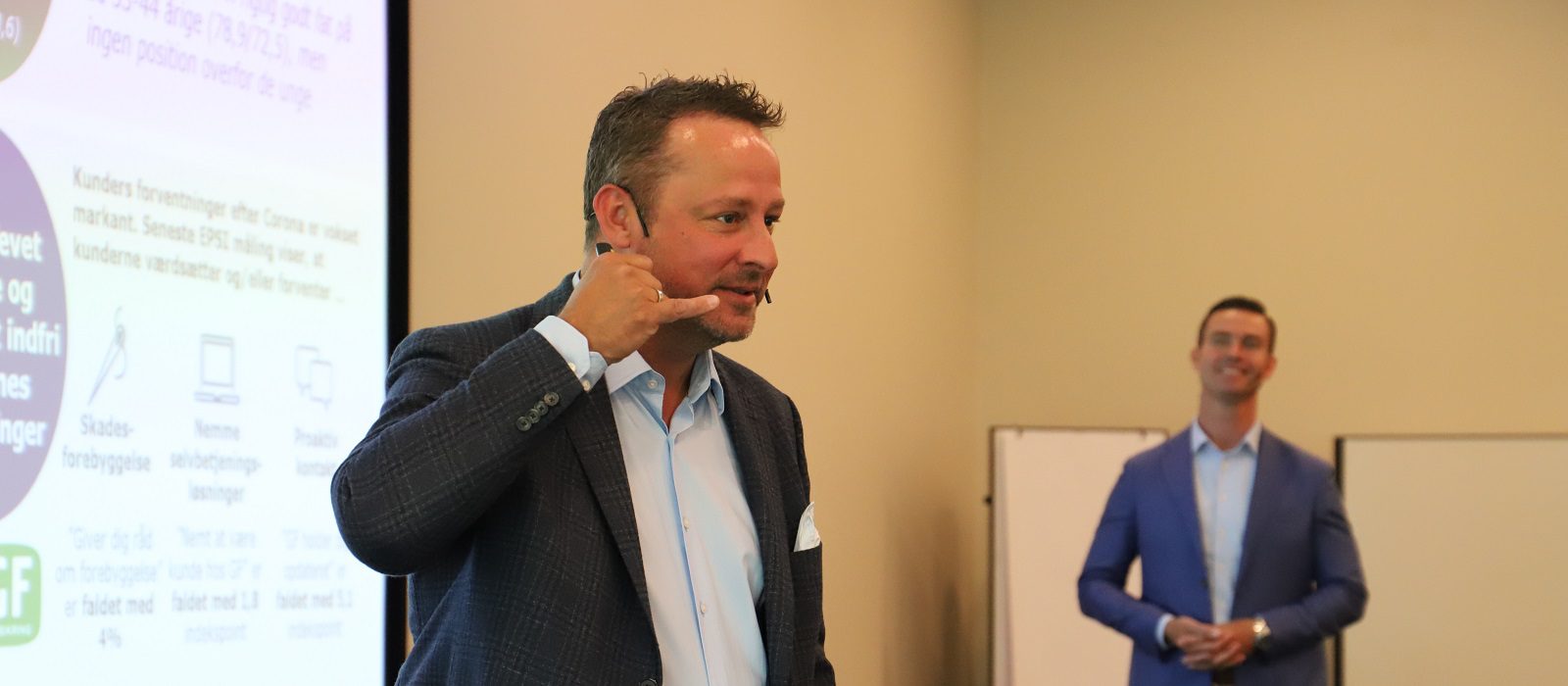I have spent a lot of time in the last few months representing ICMIF members at various international forums which are working towards combatting the greatest challenge of our lifetime, namely, climate change. Many governments and businesses are making net-zero commitments for 2050 but in reality, if we don’t make significant headway in the next few years, there may not be an insurance industry left by 2050.
As António Guterres, Secretary-General of the United Nations (UN), said recently “the collective response remains pitiful…. It’s time to wake up and step up”. This was primarily a response to the many insurers/reinsurers that have left the UNEP PSI Net Zero Insurance Alliance (NZIA) in the last few weeks/months. Guterres urged the financial community, including re/insurers, to ignore misinformation from supporters of the fossil fuel industry and remain committed to their net-zero alliances. He also stated that governments are pivotal in setting the record straight and he called upon them to provide clear reassurance that “collective climate action does not violate anti-trust – it upholds the public trust”.
Many climate change commentators are now saying that we are already at the tipping point and questioning whether we can come back from the seeming inevitability of a disastrous 2.8-degree world by 2100? What role can we play both as insurers and, in the case of ICMIF members, specifically as mutual/cooperative insurers?
The simple answer is YES, we can avoid a 2.8-degree world because progress against climate change is not a linear progression. A fast adaption to change and innovate by our industry and others could create the momentum to change much quicker and not in a linear fashion.
In the last six weeks, I have attended and spoken at two major conferences, where I was joined by our ICMIF Chair, Rob Wesseling, President & CEO of Co-operators (Canada). The first was the Midterm Review of the Sendai Framework for Disaster Risk Reduction in New York (18-19 May 2023), classified as a special UN General Assembly and hosted by the President of the UN. In layman’s terms, this was a very important meeting. We were there to participate in the Risk Reduction Hub sessions, organised by our partner organisation, the UN Office for Disaster Risk Reduction (UNDRR). The Midterm Review report, authored by Marc Gordon, Senior Coordinator of the Midterm Review of the Sendai Framework, UNDRR, who some of you will remember from previous ICMIF Conferences, focused on where governments (nation-states) are at in terms of progress in achieving the goals of the Sendai Agreement that they signed up to in 2015. The simple answer is, they are not achieving them and, in many cases, they have gone backwards.
However, it’s not all bad news, as a major highlight from the Midterm Review event was the formation of a UNDRR-convened Investment Advisory Board, consisting of a group of 12 influential global investors, including our Chair, Rob Wesseling, representing ICMIF. The group met for a full day of brainstorming on the fringes of the UN General Assembly and it will further explore pathways for a resilience taxonomy to help mobilise capital market resources for climate adaptation and disaster risk reduction. The conclusion was that, in order to create an investment infrastructure resiliency market, the current system needs dramatic change, primarily in the public sector to create investible opportunities that markets will want to invest in. A big challenge, but this group is determined to succeed.
The other session at the event in New York that gave me hope was the High-Level Roundtable discussions that I joined and which were hosted by UN Deputy Secretary General, Amina Mohammed. These roundtables were made up of 120 (mostly) government ministers plus UN representatives and representatives from the private sector who had been invited to discuss how we can solve the climate crisis. The aim of the session was not to actually come up with a solution but it did get parties talking together, which has previously been a major stumbling block, so far as each group in the public and private areas has very much been focused on their own specific aims and goal, rather than a broader outlook. The conclusion of the session was that we MUST work together. That was a big leap forward for a few government ministers on my table who clearly didn’t see the insurance industry as part of the solution to the crisis when we first sat down.
The second conference I attended as a representative of our membership was the Insurance Development Forum (IDF) Summit (1-2 June) in Zurich a few weeks later. The IDF, of which ICMIF was a founding member, is a unique public-private partnership where like-minded innovators come together to try and solve the climate crisis. It is a collective of insurance leaders, from both stock and mutual/cooperative companies, UN agencies, governments, non-governmental organisations and academia and it is really making progress. The problem is there needs to be more governments represented. Germany is the standout government that is engaging with the private sector but more governments, as I witnessed at the UN Conference, noted above, need to break their silo mentality and join the ‘coalition of the willing’.
The irony of both meetings is that the government ministers think that business is too short–term in its thinking and business thinks governments are too short-term in their planning. In both cases, there are parties that are definitely short-termist, but it’s the long-term change makers that are starting to drive the agenda at both political and business levels, hence my optimism that together we can get this done.
To the second part of the challenge, what can ICMIF members do?
I believe that many of our members have already stepped up and are playing their part in their own way towards averting the worst of the climate crisis. Those of you who were at the ICMIF Centenary Conference last October will, I hope, remember the conclusion from the conference that ‘we are all in this together’ and we all have a role to play. In my view, all insurers should embed their sustainability strategy into their business strategy, in fact a mutual/cooperative business strategy should be a sustainable strategy. Many ICMIF members are now on this journey. A new area is ‘resilience’ as defined by the seven mechanisms of resilience for insurance as detailed in the ICMIF UNDRR report From protection to prevention: The role of cooperative and mutual insurance in disaster risk reduction, and this too needs to be a key component of any sustainability strategy, this will be new to many. I would add that many members have made great strides towards this goal and we have been pleased to assist them in this journey.
These are good aims and goals but how do we achieve them? How do we measure the impact of our actions and strategies?
Some ICMIF members are already familiar with the two benchmarks that we have developed and launched over the last couple of years. Firstly, the ICMIF-calibrated Insurance SDG Calculator which was developed in partnership with Swiss Re under the umbrella of the UNEP PSI iSDG initiative. Since the launch in October 2022 at our Centenary Conference, we have had over 20 members commit themselves to benchmarking their business against the UN Sustainable Development Goals (SDGs) through the Calculator. This has far exceeded our and Swiss Re’s expectations. Plus, we already have plans to scale the Calculator up to be the industry standard for the entire insurance industry.
The other benchmark is the ICMIF UNDRR Resiliency Benchmark, also launched at the ICMIF Conference in October 2022. Several members are completing the Benchmark process now and we are working closely with the IDF and its Disaster Risk Reduction Task Force (which I co-chair) to scale this up to the insurance industry and also to utilise it to measure resilience impact in the many country projects that the IDF is undertaking.
Both these ICMIF-initiated benchmarks were presented and talked about at both the conferences I attended in recent weeks (as described above), and were very much seen as great innovations that can be change-makers in the climate crisis challenge. What we need ICMIF members to do is to get engaged in them and build the momentum for the industry to be the change it needs to be.
If you need more inspiration and motivation to join us in this work, please do come along to the first ICMIF Sustainability Summit in London on 1-2 November 2023 where the ‘coalition of the willing’ will meet to inspire and assist each other overcome the greatest challenge of our generation.
Sustainability leaders/managers from ICMIF members are also welcome to take part in virtual roundtable discussions on sustainability and ESG issues. The ICMIF Sustainability Forum was launched earlier this year and meets approximately every two months across the year. The sessions include case study presentations from ICMIF members around the world who share details of their sustainability/ESG journey and best-practice in terms of embedding sustainability into their business strategies to create value across their organisations.
It is well-documented that sustainability initiatives improve a company’s financial performance; improve efficiency; reduce costs; and drive change. This allows the business to gain a competitive edge as well as significantly enhance the business’s image to employees, potential employees and other stakeholders such as member policyholders and investors. The cooperative and mutual insurance sector is ideally placed to take a lead in the field of sustainability and sustainable investments to form a ‘coalition of the willing’ and lead by example.






